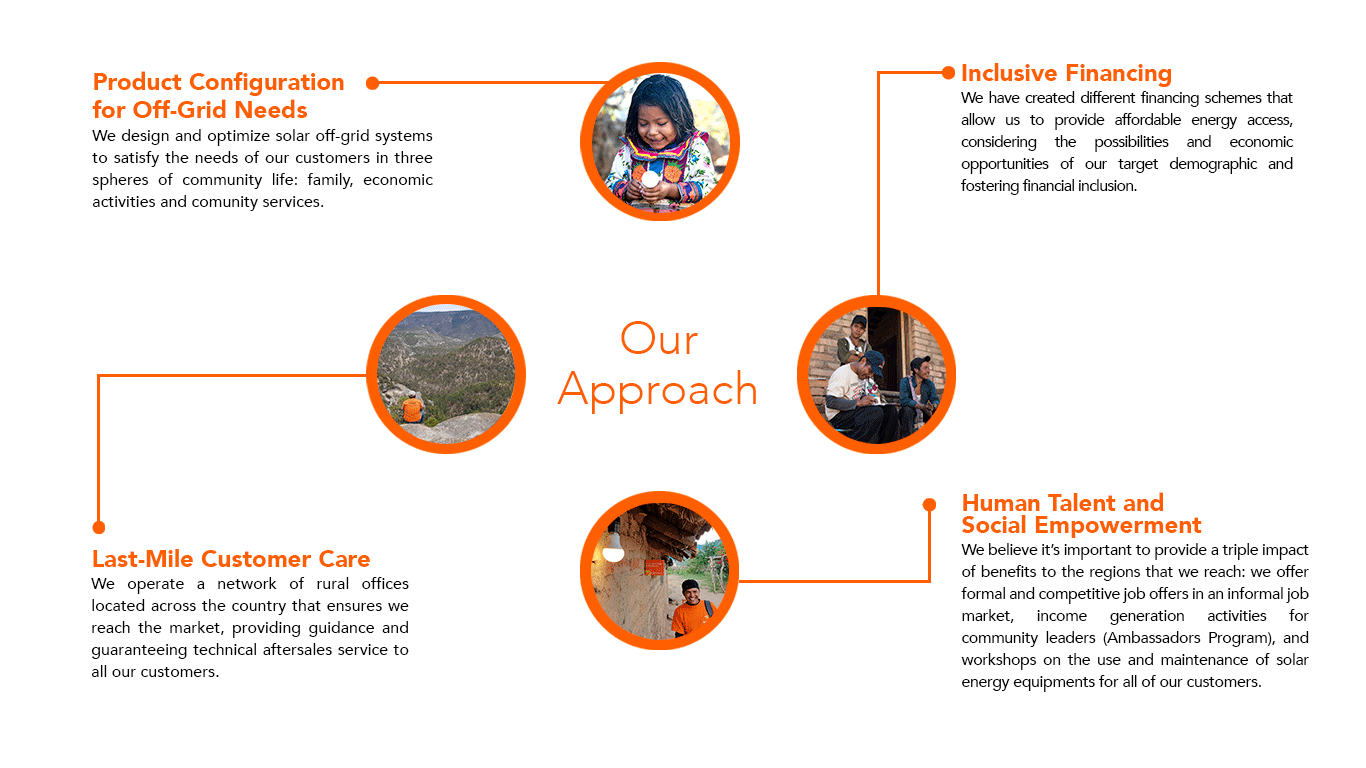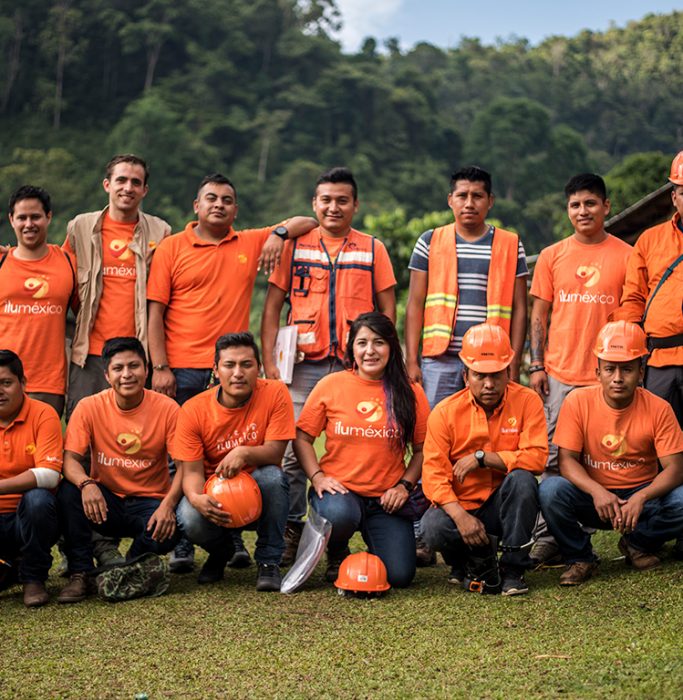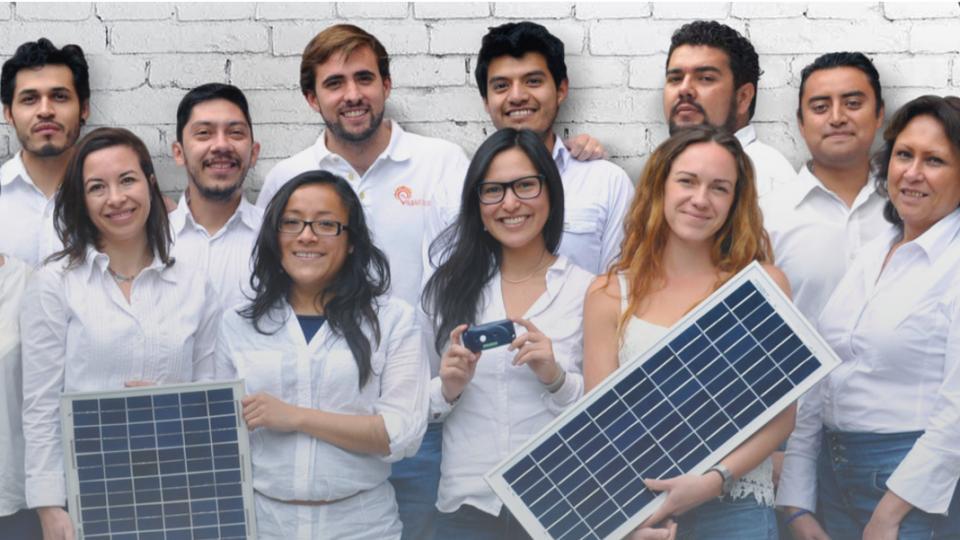Well beyond Mexico’s existing electrical grid lies a market the big boys want no part of.
In the far reaches of its mountains and depths of its forests, some 3 million people get their light by candle, or work and study by the dim, smoky glow emitted from a diesel lamp. “Experience in the ‘last mile’ distribution is what gives us an edge,” said Manuel Wiechers, founder and CEO of Iluméxico during Columbia Business School’s Entrepeneurship and Competitiveness in Latin America (ECLA) program, in which he was a participant. (Senior Lecturer Alonso Martinez, Professor Awi Federgruen, and Adjunct Professor Jack McGourty were the company’s advisors.)
Through its solar energy model, seven-year old Iluméxico has brought electricity to some 33,840 off-the-grid Mexicans, as well as schools, businesses and agricultural concerns. These areas typically are home to scattered households that large utilities consider too remote to service, said CCO Ana Lucía Coll.
A certified B Corporation — a designation given to for-profit companies that meet criteria for social responsibility and environmental sustainability — Iluméxico has displaced 4,300 tons of CO2 through its solar installations and helped educate rural Mexicans regarding environmental and fiscal responsibility.
It hasn’t been easy. To reach many of its markets, “you have to go the last mile on a donkey or by boat,” said COO Manuel Andrade.
Trial and Error
In the early years, Iluméxico ran from a centralized location in Mexico City. “We were very inefficient,” admitted Wiechers, noting that the company was just too remote from its customers.
Its solution was to set up 11 regional centers, dubbed ILUCentros, each costing an average $7,400. Locally recruited staffers assess their territories and sell the company’s solar solutions. ILUCentros “community engineers” install and maintain solar panels that Iluméxico still makes at two central factories, and hook LED light bulbs to its Prometeo device, a proprietary controller that regulates the flow of electricity and lets customers adjust the intensity of light.

Users can sign up for pay-as-you-go solar purchases that cost no more on a yearly basis than the budget they allotted for candles and diesel, and can even borrow through Iluméxico’s microloan program to fund their monthly bills.
A key to the company’s success has been its decentralized structure. Hiring locals not only cuts the expense of moving its higher-cost employees in-country, the practice also leverages community involvement since individuals are more likely to understand their regions and know the decision-makers among communities.
Which is not to say there weren’t difficulties along the way. As it began hiring local talent, Iluméxico ran into an employee turnover buzzsaw. “There are huge challenges that offset the extra costs of managing everything centrally, mainly related to HR and logistics,” said Wiechers, an industrial engineer by training. Through its involvement with ECLA, the company created a profile to identify which traits make a good hire. “We basically look for people who are not afraid to walk long distances and believe in our cause,” he explained.
Once it hires committed workers, Iluméxico rolls out a new standardized education program it devised, again with ECLA input. The goal is to have a local with no prior experience ready to hit the field in two weeks, although Wiechers admitted it still takes two months until a new hire is independent. By delivering education primarily online, training is easy and uniform, and allows for continual updates.
What the Future Holds
“We seek to be the official solar energy service for rural areas in Mexico, where we will become a household name,” said Wiechers. “At the same time, we are generating the strategic capabilities to reach the last 5 percent of any country with unprecedented operational efficiency.”
Currently, Iluméxico is concentrating 90 percent of efforts in its home country. The company’s in-country goals include 40 ILUCentros in the next four years, revenues of at least $14.9 million with net margins of $1.2 million, and a revolving loan program that will help sustain its micro loan program. In addition to signing on more rural homeowners, Iluméxico plans to step up sales efforts to businesses. Add-on sales to existing customers represents a whole other opportunity. “A customer who buys power for a light bulb may opt to pay another $10 or $12 a month and hook up a TV or computer,” Andrade said.

But the team also envisions expansion, first to similar Latin countries with far-flung, underserved populations, then to emerging markets in Africa and Asia. “We will draw on strengthening our strategic capabilities, always emphasizing the last-mile distribution,” said Andrade.
To raise $1.2 million for expansion, Iluméxico expects to partner with some regional competitors and suppliers, government entities and financial backers. “A current investor has confirmed to the board its intention to invest in the next round,” said Wiechers.
There’s always the possibility that one of those big boys who shied away from rural projects or any of a number of small competitors could buy out Iluméxico. “But we did not create the company to retire,” said Wiechers. Instead, he envisions his company bringing light to the darkest areas of emerging markets.
Columbia CaseWorks offers a case on Iluméxico. Learn more about this case.
